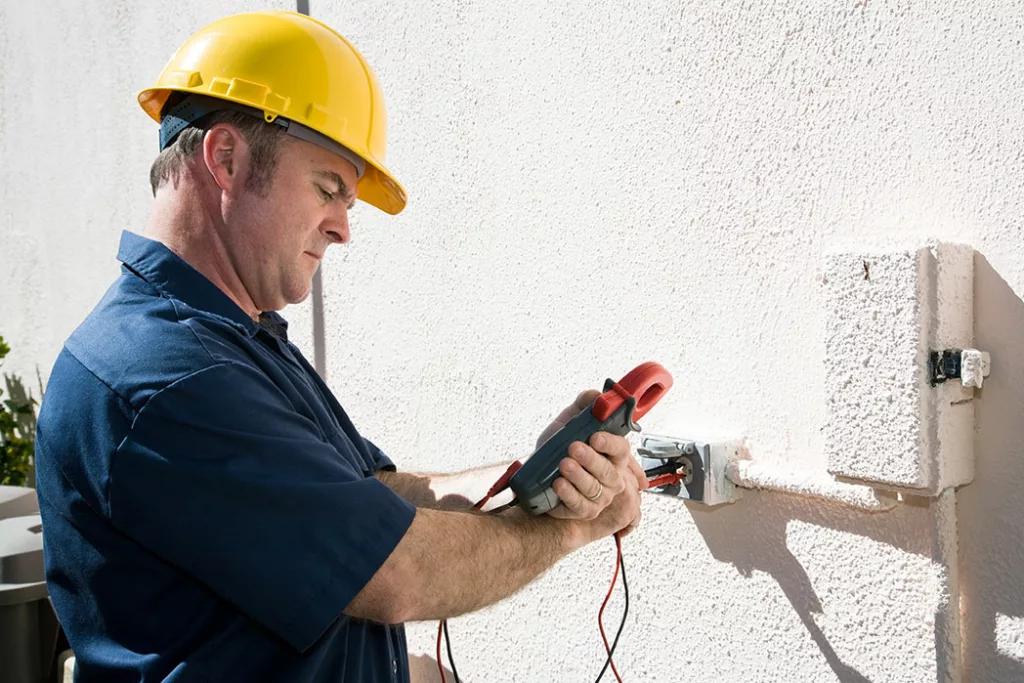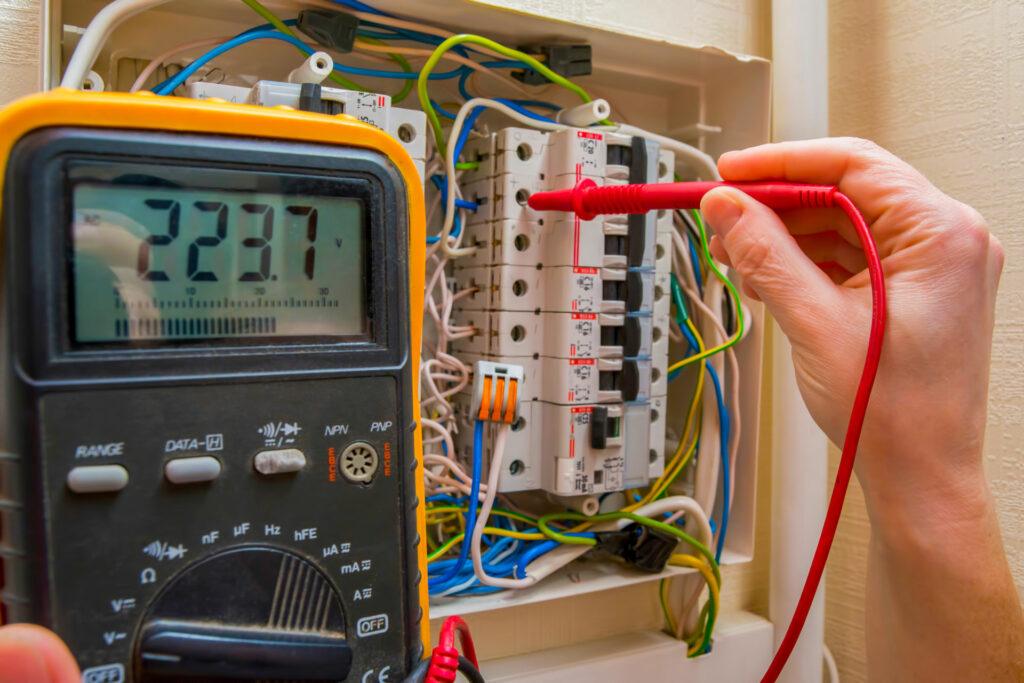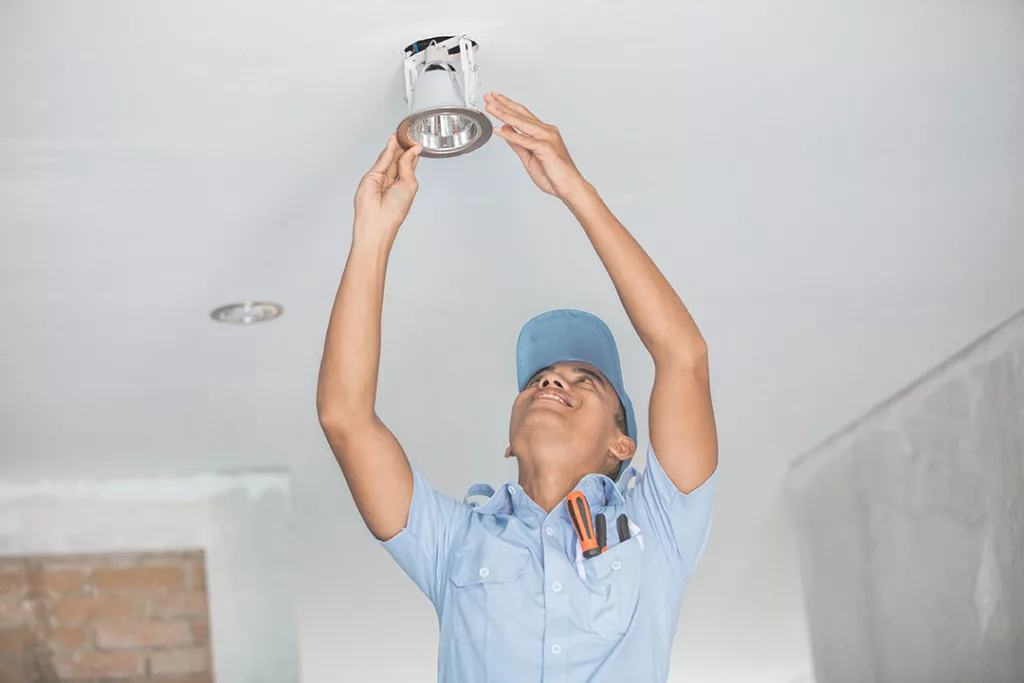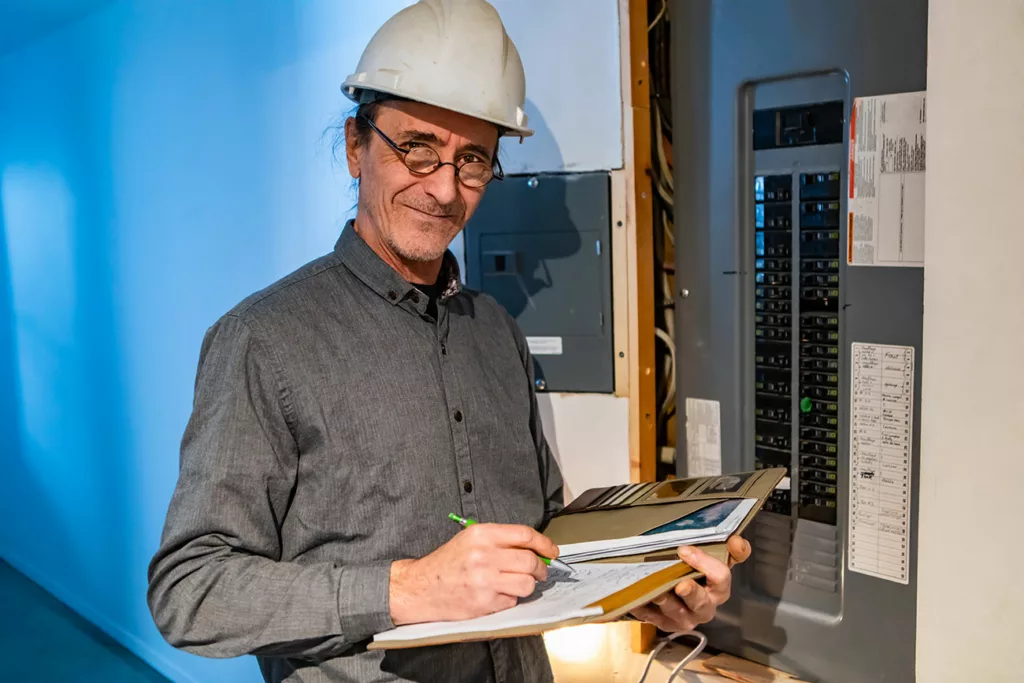Buying a home is not something most of us do every day. If you have your eye on a new-to-you home, you’ll want to make sure that it’s electrically safe for you and your family. Especially, if you’re buying an older home. Home buyers can buy with more confidence after a thorough home electrical inspection by a qualified, licensed electrician. The consequences of not getting an electrical inspection could mean an expensive repair bill later, or even a house fire. To help you with one of the many aspects of your home buying decision, we offer an essential electrical inspection checklist for home buyers. This checklist outlines six of the areas that the electrician will be checking to ensure the home of your dreams will not be the home of your nightmares.
6 Things to Have an Electrician Look at Before You Buy a Home
A licensed electrician can find the hidden dangers, before it’s too late, and offer solutions that can be performed by the seller’s electrician or funded by the seller via a lower purchase price. The following six items should be included in your electrician’s residential inspection report:
1. Electrical Service Entrance
The electrician’s inspection will include the point at which the power enters the home, known as the service entrance. Most North Bay homes now have smart meters. The electrician will check its voltage and kilowatt draw. For standard meters, the electrician will ensure that the electric load is traveling efficiently and safely into your home, checking for any signs of wear, and exposed or loose connections.
2. Outdoor Electrical Wiring

In addition to the interior wiring, the inspection will include all exterior outlets, fixtures, and junction boxes, and the wiring in any garages, workshops, or other outbuildings. The electrician will be looking for signs of damage, deterioration, or exposed wiring. In addition, the inspector will check that outdoor outlets are covered and rated for outdoor use.
3. Main Electrical Service Panel

Inspecting the main service panel, the electrician will first ensure that it is not obsolete and does not show signs of degradation. The electrician will test the amperage, inspect the bus, and circuit breakers, and AFCI (arc-fault circuit interrupter), tightening all connections as needed. It’s important to determine if the service panel or circuit breakers have been pushed beyond their capacity. This is especially important in older homes, designed when homes typically had fewer electrical appliances. It’s also important in situations where a home office or additional rooms have increased the load.
When too many electrical outlets or appliances are on one circuit, it can result in flickering lights, frequent tripping of the breakers, and overloaded and overheated outlets that can be a fire hazard. Improper organization and labeling will also be noted, ensuring that any additional wiring has been added and labeled properly. When effecting repairs, it’s critical to know which outlets are on which circuit. Assuming that the entire room is on the same circuit can lead to electrocution if that is not the case.
4. Electrical Outlets, Switches, GFIs, and AFCIs
The electrician will also check all of the home’s outlets and switches, testing for amperage and function. In addition, they will ensure that the bathroom, and any other rooms that warrant them, have ground fault interrupter (GFI) outlets. In California, any 120-volt outlets in any living spaces, bedrooms, kitchens, hallways, or laundry rooms must have a functioning arc fault circuit interrupter (AFCI). The electrician will also make sure these are in place as needed and working properly. In addition, the light switches will be tested for proper wiring and wear. Any switches or outlets that spark or show signs of scorching will be a red flag to the electrician. This may mean that the outlet or switch was improperly wired or that the circuit it is on is overloaded.
5. Electrical Safety of Lighting Fixtures

Hardwired light fixtures can be a fire hazard if not installed properly. In addition, it’s not uncommon for the wiring of a ceiling light to be damaged by a rodent that finds the wire casings delicious. The electrician will look for flickering, dimming, or malfunctioning light fixtures. If any are not performing optimally, the electrician will inspect the wiring.
6. Existence of Aluminum Wiring
Homes built during the mid 60s to early 70s used aluminum instead of copper wiring because the price of copper had made its use in wiring impractical. Aluminum wiring can be a potential fire hazard, because it can overheat connections at switches and outlets that are designed for copper wiring. An inspection of residential wiring will include checking for aluminum wiring. Though there are methods to mitigate the dangers it poses, it’s important to know, before buying a home, that electrical work will need to be done to make the electrical system safe.
Detailed Inspection Report and Recommendations
At the completion of the inspection, the electrician will provide the home buyer with a comprehensive report, highlighting any issues that were found, along with recommendations for repairs or upgrades that would be necessary. The issues may also be prioritized and include rough estimates. The report can be used to negotiate the price of the home or to have the seller affect repairs.
Get Your North Bay Residential Electrical Inspection from Schafer Electric
Buying a home is a big decision. Hiring an electrician to make sure it’s electrically sound is an easier decision than deciding to sign on the dotted line. In fact, the electrical inspection can help you decide, and help keep you safe if it becomes your new home. Whether you need to ensure the safety and efficiency of the home you’re buying or the home you’re in, Schafer Electric is at your service.
The certified electricians at Schafer Electrical can answer all your electrical safety questions. If you need an electrical inspection or repair at your home or office in Sonoma County, Marin County, Lake County or Napa County, contact us online or call 707-545-3300 to schedule a comprehensive electrical inspection today.



No comments yet. Add the first comment